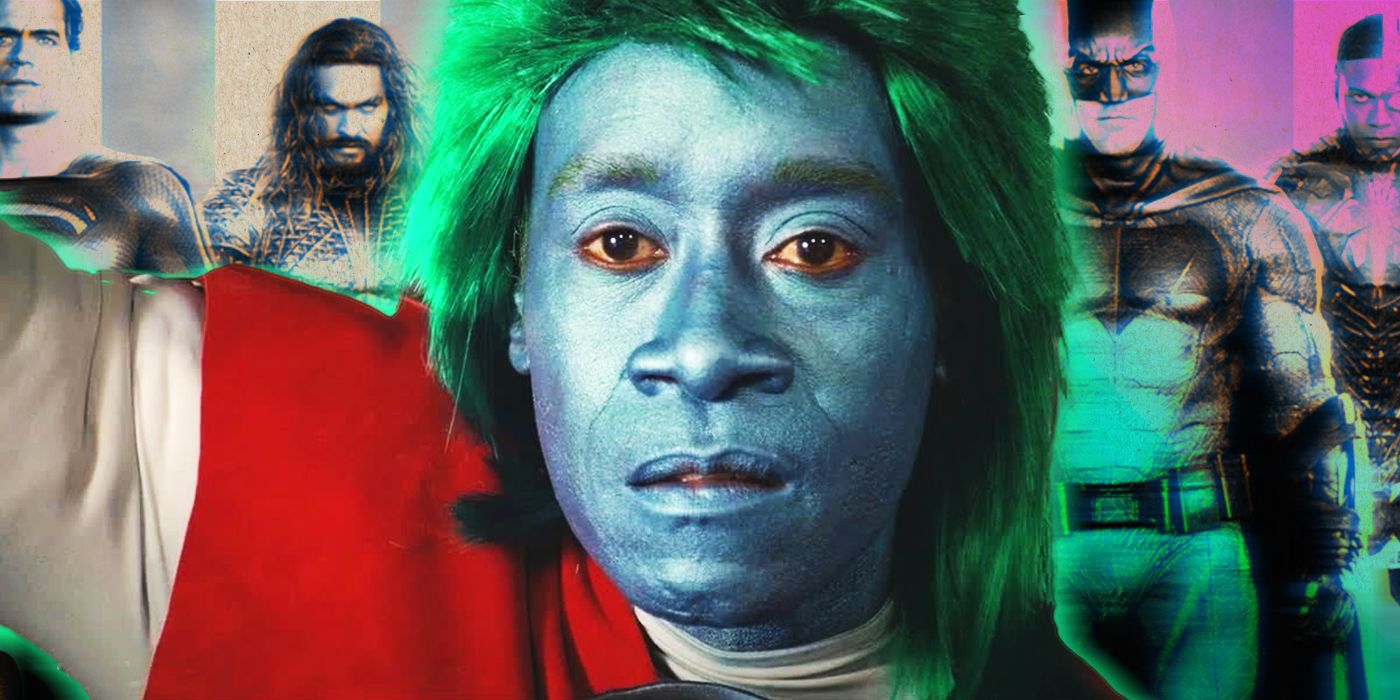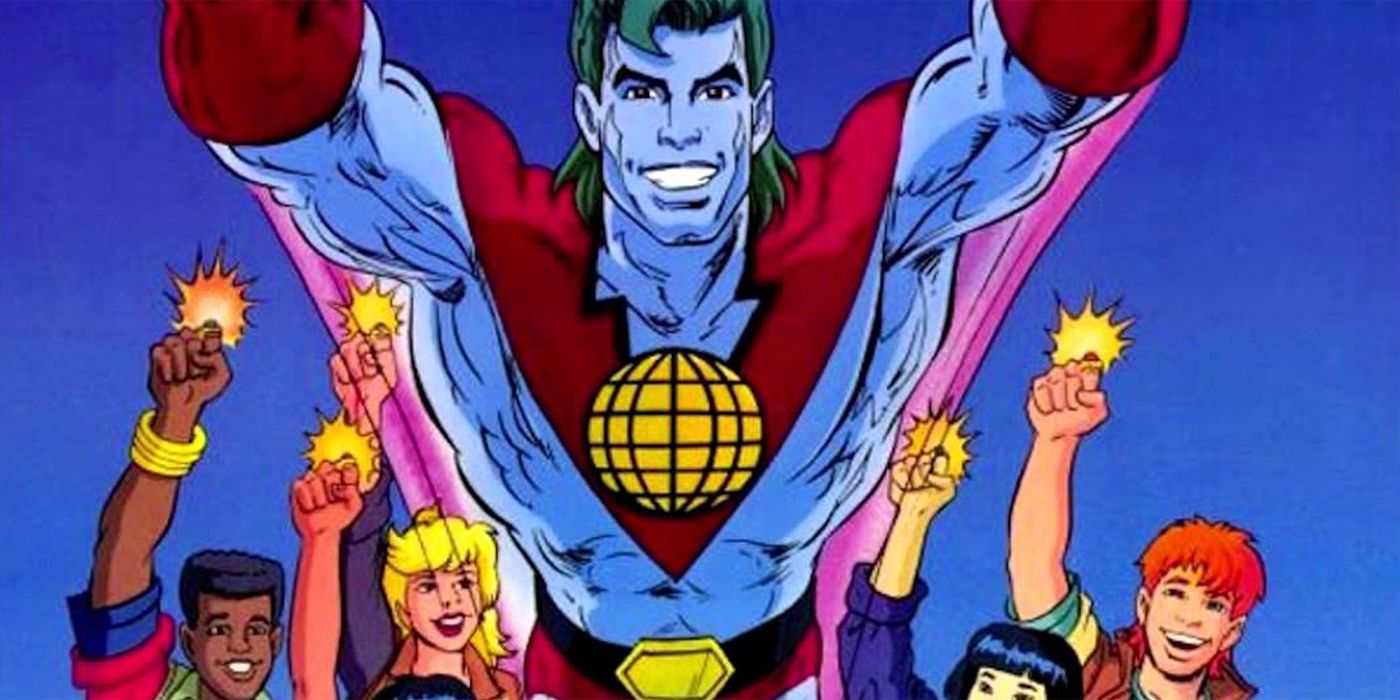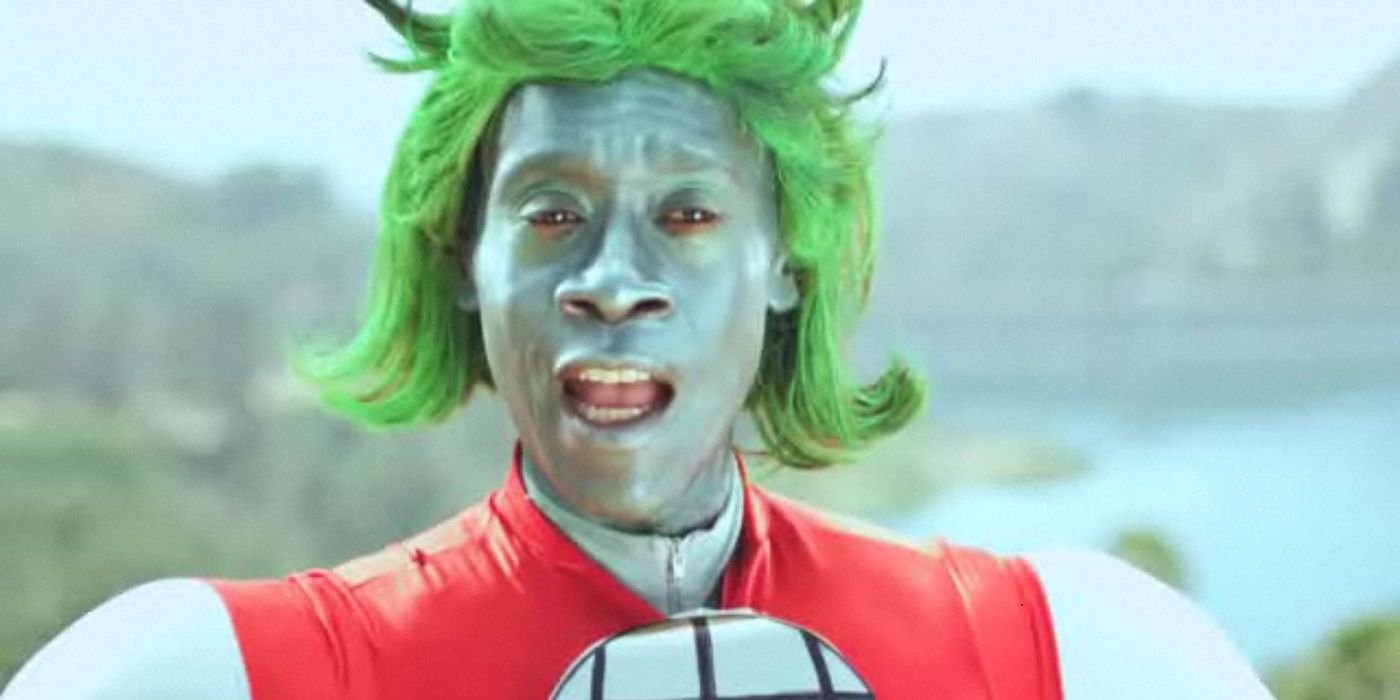Zack Snyder’s Justice League – and, indeed, all of Snyder's entries in the DC Extended Universe – is known for its darkness, figuratively and literally. The filmmaker takes a long look at the shadowy side of superheroes, causing a great deal of contention among the DC faithful. But when it comes to the grim implications of gods walking among humanity, even the Snyderverse can’t compete with Don Cheadle’s takedown of Captain Planet in a now-classic series of Funny or Die clips. They became almost nihilistic in their bleakness, and yet the comedy was very simple: Take the eco-friendly 1990s cartoon to its logical extremes, and turn the absurdity into a living nightmare.
Captain Planet and the Planeteers debuted in September 1990 as a well-intentioned effort to teach environmentalism to children. It was quite ambitious for the time: Whoopi Goldberg provided the voice of Mother Earth (and won an Oscar in the middle of her run), and Tom Cruise reportedly signed on for the title role before dropping out. It also dated itself quite badly, featuring heavy-handed speeches about the environment, eco-based puns and wordplays, and some troubling ethnic stereotypes presented in the name of multiculturalism.
The Original Captain Planet Was Ill-Defined but Omnipotent
That left plenty of satirical targets to make fun of. But beneath those surface details, the cartoon evinced a series of ongoing narrative problems that the Funny or Die sketches took ruthless advantage of. Captain Planet never fleshed out its core idea in any appreciable way. Its hero was a generic omnipotent god-being with a vast array of reality-shaping powers that could be altered on a whim to solve whatever problem he faced at the moment. The show rarely defined these powers beyond bland visuals such as beams fired from his hand, and beyond the surface messaging, he was simply a cipher.
The cartoon’s straightforward universe of good vs. evil didn't need anything more from the character, so it didn't bother fleshing out his character. As a result, Captain Planet himself felt less like a personality and more like an environmentally-themed automaton, created by the energy rings of the show’s teenage heroes and returning to them whenever the villain was defeated. As the Funny or Die sketches observed, such a figure might be a pure sociopath, especially when confronting the true cause of ecological devastation.
Cheadle’s Captain Planet Targeted the Real Problem
The original sketch starts by poking fun at the show’s various awkward elements – from posturing speeches to tree-based puns – complete with a smiling Cheadle in a powdered green mullet. Then he begins turning people into trees: first villains, then normal civilians, and eventually the whole world. Initially elated, his young friends grow horrified at his actions, then find themselves held hostage to an openly psychotic “hero” bent on making the world green for good.
Subsequent sketches show an Earth under Captain Planet’s ruthless thumb, with its few remaining human inhabitants living in constant fear of his increasingly erratic whims. It more closely resembles the Twilight Zone episode “It’s a Good Life” than any four-color comic book universe. He kills the Planeteers and even Gaia herself, before being pecked to death by woodpeckers in a surprisingly gruesome finale. Then, in an ironic precursor to Avengers: Endgame, the people of Earth are restored, only to start polluting again just as they always had.
The satire stays focused on the cartoon's simplistic suggestion that climate change can be beaten simply by recycling and sending a few bad guys to prison. More serious comic-book movies – Endgame and Avengers: Age of Ultron as well as Snyder's films – also grappled with godlike beings who might destroy humanity in the name of the greater good. As a work of humor, the Cheadle sketches could go where more mainstream efforts couldn’t and could examine the kind of hellscape that might emerge under a being who can’t be stopped. It’s genuinely frightening, which might be why the comedy still packs a punch.



